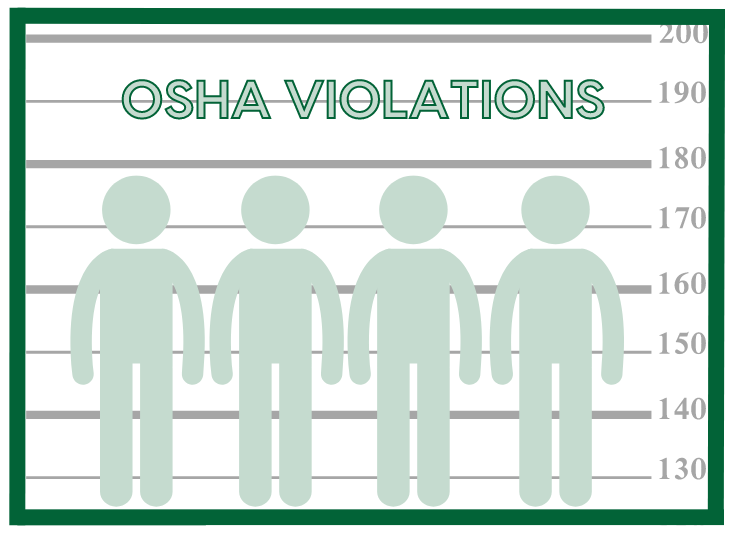ESG, Sustainability, Reporting Frameworks, and the Real World of Compliance
It’s 2024, and many companies remain confused or slow off the block as they try to launch sustainability programs. They are also baffled while simultaneously attempting to roll out environmental, social, and governance (ESG) reporting or related initiatives.
That’s not surprising, given how, over the past two years, there has been so much buzz, fog, and false alarms around both topics. Making the situation more complex is that many managers sometimes confuse ESG and sustainability as being the same thing. In reality, while complementary, they are mostly separate programs.
It's crucial to grasp the similarities and differences between both sets of concepts. After all, we’re in an industry where what we don’t know (legally or otherwise) can hurt us. So, environmental, health, and safety (EHS) managers must understand exactly what sustainability and ESG and green reporting and the like really are—and how they will impact their organizational operations and bottom lines.
In this article, we’ll generally investigate both ESG and sustainability—where they intersect and the ways they remain independent, two equally necessary operations. We’ll also attempt to clear up common misunderstandings.
ESG: Back and Forth Debate
We'll get the definitions aside now. As this blog has noted, the "E" in ESG is a conceptual way for companies to demonstrate their commitments to environmentalism—both financially and within core operations and principles. Specifically, it involves publicly reporting these initiatives. On the other hand, sustainability is easily defined as an operational approach to limit any impacts on the environment. Naturally, they are intertwined.
involves publicly reporting these initiatives. On the other hand, sustainability is easily defined as an operational approach to limit any impacts on the environment. Naturally, they are intertwined.
Admittedly, there are ESG and sustainability critics who believe that compliance with either will harm business profit and performance. This has been a topic of great debate among environmentally driven investors and consumers, politicians, and those corporate managers already disclosing their ESG metrics (either voluntarily or to meet international regulations).
Lately, domestic pushback has had very real effects. In the first half of 2023 alone, legislators introduced 165 anti-ESG bills and resolutions in 37 states, according to one report. While only a few of these bills ultimately passed, critics have cited these attempts as a reason for companies to ignore the ESG movement.
ESG Concepts Still Enforced
Despite this, some experts contend that this political and market pullback on ESG in the United States is both natural and anticipated. They also argue that it doesn’t mean that ESG is going away—it’s likely that regulators and lawmakers will continue to focus on corporate environmental disclosures, no matter what they are called or under what movement.
And, the fact is, ESG remains a reality for many businesses. For example:
- Federal agencies, such as the US Department of Labor (DOL) and the Securities and Exchange Commission (SEC), are proposing and adopting rules that focus on ESG disclosure and performance. In fact, there are pending SEC rules that may affect 40% of domestic companies' emissions and climate risk reporting.
- According to the Governance and Accountability Institute’s 2024 Sustainability Reporting in Focus research, a record 98.6% of S&P 500 companies and 93% of Total Russell 1000 companies are offering ESG disclosure and sustainability reporting.
- Some state-level ESG reporting rules and regulations have passed and are in effect—most notably in California. The Golden State has already approved four ESG-related laws applying to many public and private companies. One law requires any company with more than $1 billion in revenue to calculate and report their operational greenhouse gas emissions.
- Existing foreign reporting requirements govern many companies that operate both domestically and internationally. The European Corporate Sustainability Reporting Directive (CSRD) directs all large and listed companies to report on environmental risks, among other topics. The International Sustainability Standards Board (ISSB) issued global sustainability disclosure standards in 2023 that many global authorities, including Australia, Canada, Hong Kong, Japan, and others plan to make national law.
For the time being, for many parties, ESG in some form is a reality.
Where ESG and EHS Connect
While regulators are focused on passing bills and approving or denying legislation, organizations today need to be aware that if they are not already obligated to disclose any of their ESG data, they will likely soon be—in some form. And for those public companies already subject to ESG-related requirements, noncompliance can hurt stock values and damage the brand.
In fact, many companies that do not yet have a legal obligation to report environmental stewardship are doing so voluntarily. It’s a way of differentiating themselves from their competitors. Plus, if they do become subject to ESG or similar requirements, they will already be compliance ready.
Many administrators and executives facing reporting demands will typically turn to their EHS department to launch and run the compliance program. The team members craft the policies and metrics required for proper disclosure. When successful, these efforts enable the company to offer efficiency and environmental progress updates that can be shared and understood worldwide.
Contrary to what critics say, participation in these programs, potentially, is just another way for EHS professionals to boost corporate operational success. That is because these efforts improve waste management and other EHS activities, and that can result in:
- Greater safety
- Lower operating margins
- Waste reduction
- Improved reporting and documentation
- A fatter bottom line
- Boosts to productivity programs
Beyond ESG Reporting
Inevitably, to the degree they make sense, ESG data requirements will likely spread, even if they aren't called "ESG." International rating corporations, consulting firms, and data and technology companies must adopt these concepts and practices. So will internal corporate legal, accounting, and EHS teams in companies that do business in ESG-friendly markets.
To assist with these loosely defined reporting terms, global organizations disseminate ESG-based reporting frameworks and guidelines. Even without legally mandated ESG-specific reporting, corporations worldwide will still be adopting some types of environmental and sustainability disclosure methods.
For reference, other applicable reporting frameworks include:
- Global Reporting Initiative (GRI) standards, which are leveraged by 10,000 organizations in more than 100 countries and include sustainability reporting directives.
- Guidelines from the Sustainability Accounting Standards Board (SASB), that rely on sustainability risks and opportunities disclosure.
As of 2023, according to a report by the Governance & Accountability Institute, with a 81% usage rate, SASB is the most widely adopted sustainability standard among the Russell 1000. Some 54% of reporters aligned with GRI, the report states.
ESG and Sustainability
It’s clear that ESG and other green reporting requirements are fluid and will continue to evolve over time. It will be up to the public, governments, shareholders, and activists to keep modifying and spreading the standards. They will share the burden with all others who take an interest in environmental stewardship.
In the meantime, the first concrete step for long-lasting ESG and green reporting compliance is to perform a current-state operational analysis. This means stakeholders must:
- Report on direct and indirect greenhouse gas generation, on multiple levels (including inventory procurement's impact)
- Accurately disclose financial data relevant to a company's climate-change risks
Additionally, managers can achieve ESG compliance through a deep analysis of their sustainability goals. They then evaluate these goals in light of the company's:
- Climate and environmentally friendly corporate practices
- Sustainable finance, supply chain, and anti-greenwashing policies
- Investment labels protocols
There is no one industry disclosure template available, and no one individual sustainability officer is likely capable of meeting all requirements. So ESG and sustainable reporting activities tend to become the responsibility of a capable project team that operates with management's full backing.
Partners for ESG Reporting and Sustainability
Obviously, because of their complexity and other factors, adherence to ESG and other green reporting guidelines is a major EHS management challenge. Administrators may realize there isn't always one single, absolute right answer to give when offering disclosures.
One way to ease this pain and quickly start producing relevant reports is to turn to an experienced and trustworthy partner. Ideally, the collaborator also offers the practical know-how to assist with ongoing (or planned) sustainability programs. Such a partner can:
- Identify relevant trends
- Mark areas for reporting and operational EHS improvement
- Use data-driven solutions to analyze metrics and generate reports
- Leverage the best and most appropriate reporting frameworks
- Help you provide the most transparent and easily shared disclosures
- Ensure future compliance
This partnership can produce positive ripple effects: the reporting and disclosure data and processes can drive actual internal EHS operational improvement programs, guiding training and supporting interdepartmental collaboration. Sustainability and reporting improvements may take time, but successful change management programs are an investment that can pay long-lasting benefits.
Talk Sustainability and Compliance with Us
And let's face it: ESG and green reporting and analysis, at least in some forms, are here to stay. So let them support the creation of a positive virtuous cycle, one that helps makes sustainability improvement plans a reality. Then, the organization reports back through the ESG frameworks about that progress, and so on.
At Triumvirate Environmental, we know the EHS industry cannot remain frozen in the past. We recognize that no matter the acronyms thrown about, our world is rapidly changing, becoming more green focused and environmentally friendly.
We see value in taking small steps and not getting too lost in the verbiage. That's why we practice manageable but quantifiable improvement. This is realized by taking concrete steps to the future—which includes commitments to ESG and sustainability.
We are the partner you want on your side for all things EHS and sustainability—start a conversation with us today. We provide big solutions to big reporting and improvement problems.






.png)
